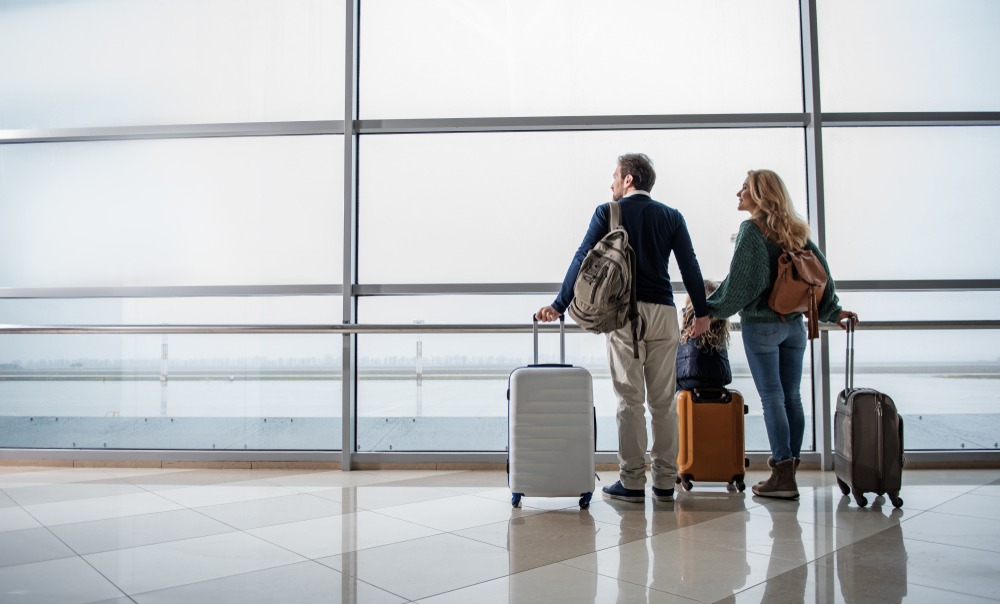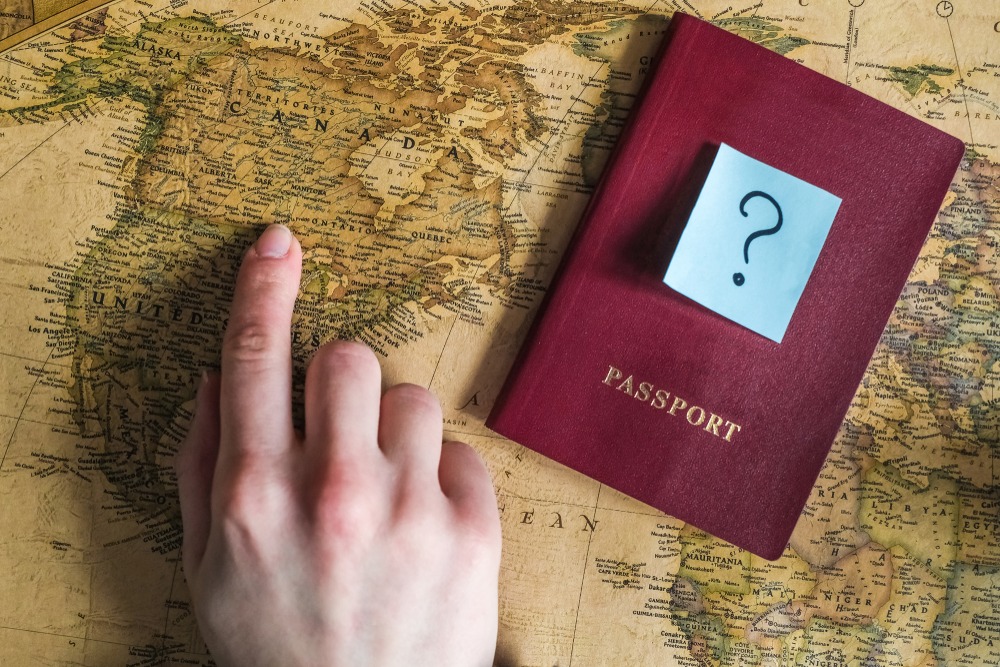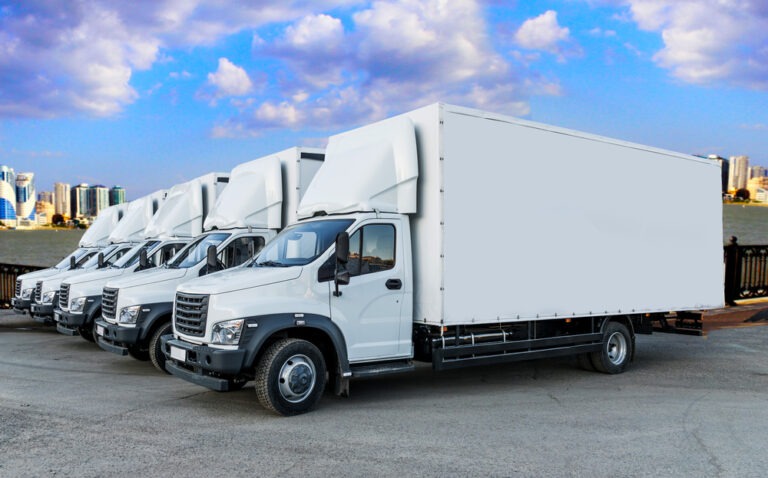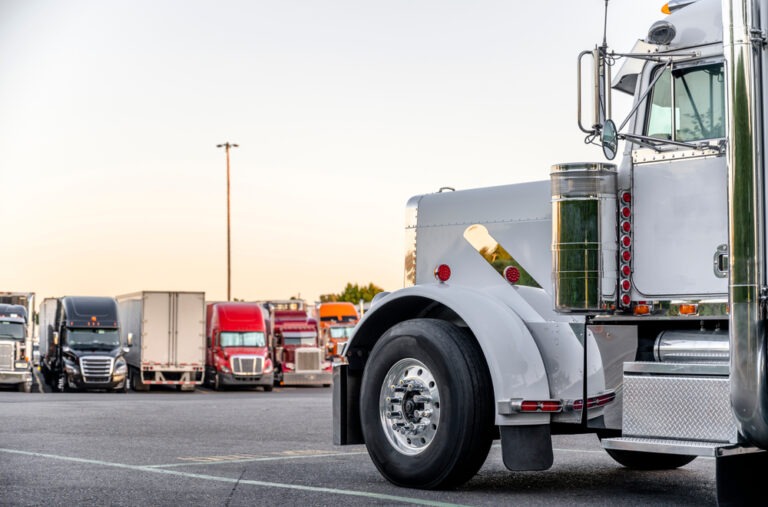Moving Abroad With a Family – The Key Steps You Have to Take
Moving to a new country is stressful if you’re doing it on your own. But when you’re planning this massive life step with a family, everything you need to consider becomes double as important.
If you felt panicked thinking, “I want to move abroad with my child,” don’t worry. While the process contains several individual parts, it will become easier once you break it down into particular sections and clearly defined actions.
This article will aim to do just that. If you’re planning on moving abroad with a family, read on to learn about the key steps you’ll need to take.

Getting to Know Your Destination
While there are many opportunities for families to live abroad, not every opportunity is as good as the next one. That’s why you should check not only the country you’re moving to but the specific city and, if possible, the neighborhood.
Firstly, you should look for information on essential services:
- Is the water supply steady and safe?
- How’s the electrical grid? Does it experience frequent blackouts, etc.?
- Is there a reliable internet connection?
Next should be the communal considerations:
- Are there schools and medical facilities nearby?
- If your family members require specific healthcare, can they receive it there?
- Are there other expat families in the vicinity?
- Does your new city offer job opportunities?
- Is the place safe for family life?
If you can’t find this information, it might be worth it to check the situation on-site. Leaving family to move abroad on your own for a short period could be the perfect way to test the waters.
You should first look for the essentials. This includes all of the infrastructures to help your family maintain a similar lifestyle to what they had. But, of course, if you’re moving abroad with a family to stay for longer, those basic concerns will be only the beginning.
Ensuring your kids adjust to the new environment will be at the top of your list. This is why connecting with other expat families is important, as they’ll help ease you and your kids into social life.
Luckily, plenty of people take to working abroad with a family or decide to move their place of residence permanently. Those people often form close communities, which you can contact easily.
Today, many social media platforms have entire groups of expat communities. Joining such groups can help you create contacts as soon as you start planning the move.
Passports and Visas
It shouldn’t come as a surprise that checking everyone’s passports will be the first task on your list. Here’s what that includes:
- All passports need to be valid. In other words, you should ensure they haven’t been damaged or expired.
- Most countries will require passports to be valid several months after entry. If any of your passports are about to expire, it would be wise to renew them.
- Make sure there are a minimum of two blank pages in each passport. Not having enough space for stamps and visas can cause an issue.
When it comes to visas, you should check the particular conditions imposed by the country you want to move to. After all, if you’re moving your family overseas, you want to make sure everyone gets to the destination without complications or delays.

Medical Considerations
Whether you’re moving with family members or on your own, it will be necessary to consider several medical-related matters.Every country has specific requirements in this regard, and they can vary slightly or considerably from one country to another:
- Check what kind of examinations your country of choice requires. It would be best to take care of medical checks early in the process. However, keep in mind that, in some cases, medical checks might be valid for a limited time.
- Certain vaccination might be necessary for anyone who wishes to visit some countries. In fact, this might be a requirement for going to specific areas of some countries. You should get informed on which shots, if any, are mandatory.
- Getting medical records for the entire family will be another wise step. You might be required to provide such documents upon visa application or entry into the country.
- When relocating with family members who take prescription medications, you should research whether your country of destination has any restrictions or bans on those medications. Drugs that are legal in the US might not have the same status abroad.
- It would be worth it to explore options for family or individual health insurance in the new country. While you might not be able to arrange a policy before getting there, you could start the process by researching your possibilities.
Documentation
It should come as no surprise that moving your family abroad involves a lot of paperwork. The crucial documents you’ll need to provide include:
- Passports for all family members
- Driver’s licenses
- Social security cards
- Birth certificates for everyone, including the kids
- Appropriate documentation for adoptions or legal custodianship
- Certificates of Citizenship
- Marriage certificate or divorce documentation
- Police clearances for adults
- Diplomas and school transcripts for everyone
- Grade records for kids who will continue education in the new country
- Professional licenses or certificates
- Complete medical documentation
What to Pack?
The next important consideration will be which things you’ll take along. This will vary depending on your plans. If you live abroad for a year with family, that won’t require the same volume of belongings as staying long-term. Here’s what to consider:
- If you’ve decided on a home in the new country, how much stuff you bring along will largely depend on the size of that home. Naturally, you don’t want to overcrowd a smaller apartment with everything you had at your old house.
- When it comes to clothes and sensitive items, consider the climate. Some countries will have a much different weather system than what you’re used to. This might make old clothes impractical. Plus, differences in moisture may harm particularly sensitive belongings, so you might not want to pack those.
- Think about whether you have to take everything with you. Your destination might have plenty of things to replace old items. As a simple example, buying a bunch of shirts when you arrive would be much more convenient than taking them along for the journey.
- Reserve space for some essentials even though they might not be as practical. Here, we’re talking about items with sentimental value than practical or monetary value. These will be precious for kids – moving countries as a child can be stressful, and familiar, comforting items can help reduce that stress.
Once you narrow and adjust the list of things you’ll be taking along, it’s time to consider two other factors: the shipping price and potential risks.
When moving your family overseas, the list of things you carry with you will probably be massive. Of course, the cost of shipping will only increase the more items you move. That’s why it would be best to see if there are certain things that aren’t worth shipping.
These would include objects of low value that carry no sentimental attachment. Even if they were practical, such items would be more trouble to ship than they would be useful at your destination.
Regarding risks, you shouldn’t ship any items that could get damaged on the journey. This would include particularly fragile or awkwardly shaped objects.
Once you’ve refined your list completely, there will be one more thing left to consider: whether everything you’re bringing into the new country is permitted to enter. To ensure that you don’t have any trouble getting your belongings to your destination, you should research potential limitations on personal items.
Getting Your Belongings to the New Location
When moving abroad with a family, chances are you won’t be able to take everything you want on a plane. Instead, you’ll need to consider the services of a shipping company.
The main concern in this regard is to find a company that can manage the job reliably. After all, if you’re moving abroad with a child, the last thing you want is to get to your destination and find that crucial items are missing or broken.
You should put plenty of attention towards finding the right service. It would be best to start by making a list of companies and picking several top candidates based on the information you can find online.
Then, get on the phone and ask each mover some key questions:
- What is their experience with international shipping?
- Are their services covered by insurance?
- Do they have particular expertise in moving families abroad?
- How much would the service cost, and what precisely would it entail?
All of these factors will play a significant role in making your decision. The things you’ll need when moving your family abroad must arrive intact and on time. However, that doesn’t necessarily mean you have to overpay for the service.
The mover of your choice should be experienced in such jobs and preferably specialized in international family moves. Ideally, they’ll have insurance that covers any transported items. Finally, the shipping company shouldn’t charge too little or too much.
You’ll get the best feel for whether the pricing is fair or not by comparing various quotes.

Getting Through the Transition Period
The most sensitive part about moving your family abroad might not be the technicalities of preparations. Instead, it may be the point where the family starts living a life in the new environment. This will be particularly true if you’re moving abroad with a child.
Kids might have specific issues with going overseas to live. If they’ve developed early friendships, become active in school, and started engaging in various local activities, leaving all that behind won’t be easy. And starting again somewhere else presents a different challenge altogether.
The same goes for adults, too. A large part of the moving stress comes from the period of adjusting to the new environment. However, adults (hopefully) have better mechanisms to handle those initial hardships.
Moving countries as a child is undoubtedly more complicated.
That’s why it would be best to start preparing your kids for the move early on. You can familiarize them with your destination well beforehand by showing them videos and images and sharing interesting stories.
Letting your children have a role in planning would also be helpful. For instance, they could choose what to bring along or leave behind.
Furthermore, your kids could start making connections with other children from expat families online.
All this will create some groundwork for the transition period. When the kids get to the new country, they won’t feel like they’re treading on completely unfamiliar ground. Instead, they’ll be prepared for at least a portion of the experience.
Get Ready for a New Chapter in Your Family Life
If you prepare everything well in advance, moving to a different country with your family could be a much less stressful experience. Of course, you can’t expect it to go entirely smoothly, but with proper due diligence, the process will be as smooth as possible.
Creating a foundation for professional and social life will be as important as the technicalities of paperwork and shipping your belongings. To that end, you should follow the advice from this article closely.
One of the crucial steps will be to find a shipping company that you can trust. When you start searching, why not consider an experienced mover like Arlington Movers Virginia? You might find just what you’re looking for.




